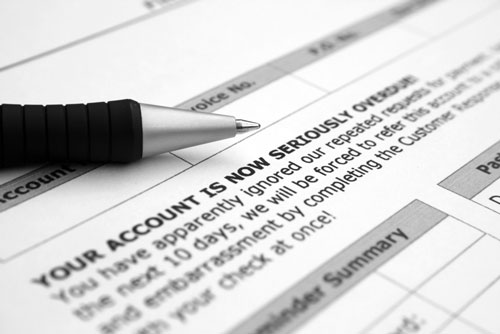Yahoo News — If you have racked up a lot of debt on credit cards, loans and overdrafts, then you may need a quick-fix solution.
 If you are scared to death to look at your checkbook balance, you avoid opening bills, you are late on making payments to creditors and you never answer the phone at home, you might consider debt consolidation.
If you are scared to death to look at your checkbook balance, you avoid opening bills, you are late on making payments to creditors and you never answer the phone at home, you might consider debt consolidation.
Essentially, debt consolidation combines all of your debts into one loan so you only have to make one payment. This idea might sound appealing, but it has its disadvantages as well as advantages. To determine if debt consolidation makes sense for you, take a look at these facts.
There are a few ways that exist to get funding to consolidate, and pay off, your debts. One of them involves working with a debt consolidation firm. It is true that you can consolidate your debts on your own, too, and pay off debt but it sounds easier than it is. It is best to let a professional like DebtHelper.com, who has experience and knows the ins and outs of the industry, handle your debt management.
Some people look to refinancing or borrowing against their homes as a route toward debt consolidation. Refinancing your home and taking cash out can help pay down high-interest debt, and can be tax-deductible, but carries risk. What I don’t like about refinancing to pay off debt is that you have now financed your debt for usually 30 years. Don’t you think you could come up with another alternative to paying off high interest debt? Again, if you find yourself in this situation, seek the advice of a professional that helps get people out of debt. A loan officer who sells refinances is likely not your best resource for honest advice on curing your debt problem.
If you do end up refinancing your home make sure that there is no possibility of missing a payment. The last thing you want is to face foreclosure because you transferred too much unsecured debt to secured debt. (Unsecured debt is not supported by any type of collateral or asset, and it includes debt from medical expenses, credit cards and utility bills.)
With a home equity loan or line of credit, you borrow against your home’s equity.
With a home equity loan or line of credit, you will borrow against the equity in your home in order to pay off those bills. However, you of course have to put up your house as collateral. This is essentially a second mortgage on your home. This means, just like a normal refi, you could lose your home if you are unable to make the payments. Plus, if your home’s value drops, you will likely be upside-down and you may not be able to pay back all the money you owe if you sell your home.
Some people like to find a low interest rate credit card with a credit limit large enough to cover all of their other debt and use that to pay stuff off. This is a wreck waiting to happen. Chances are that if you got yourself in trouble with your other credit cards, something will come up and you will use this new, larger limit card, and increase your debt even more.
You must at all costs, avoid adding to the mountain of debt.
 Debt consolidation can make things easier for some people by helping to make payments on-time. But it does not address issues like overspending and poor budgeting – issues that, for a lot of people is what created the original debt problem. If you choose debt consolidation, you must also educate yourself and change your way of managing your money and dealing with debt.
Debt consolidation can make things easier for some people by helping to make payments on-time. But it does not address issues like overspending and poor budgeting – issues that, for a lot of people is what created the original debt problem. If you choose debt consolidation, you must also educate yourself and change your way of managing your money and dealing with debt.
If you are currently past due or overwhelmed with your debt situation, seek the advice of a professional.
The professionals at DebtHelper.com can explain the benefits of a debt management program and provide you with a fresh start.
One of the biggest long-term benefit of the debt management plan is the reduction in interest. Reduced interest allows you to pay off your principal balances faster while saving you possibly thousands of dollars in finance charges.
In order to determine if you are eligible for a debt management program, you can fill out an online budget application form now and then you can contact one of their Certified Personal Finance Counselors© at (800) 920-2262.
DebtHelper.com can currently accept clients from the states listed here. DebtHelper.com is licensed, insured and complies with all state licensing requirements to ensure mandated regulations are followed. They are diligently working on becoming licensed in every state and are opening new states monthly.
Please call (800) 920-2262 if you have any questions. DebtHelper.com’s consultations are free, call them any time.




